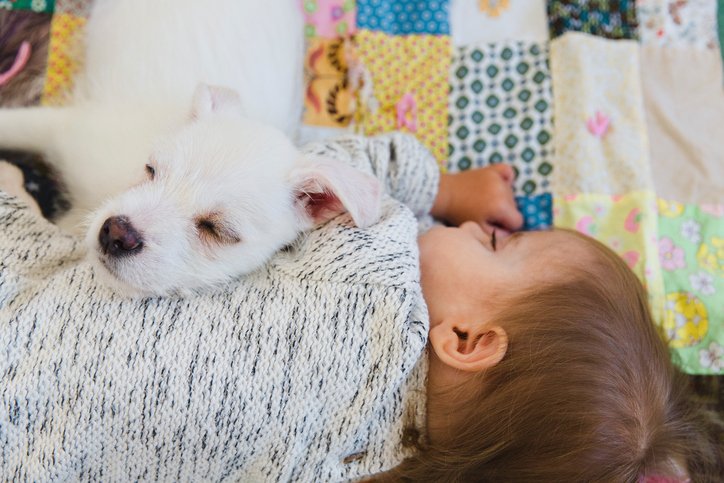Some developmental milestones, like smiling and laughing, are great fun for parents and babies alike, while others just feel necessary. Sleeping through the night is one milestone many parents look forward to, but it doesn’t always happen at a specific time. In fact, many factors contribute to frequent night wakings, even after an infant seems to have reached that coveted milestone.
It’s true that some babies sleep through the night sooner than others, but all babies need to reach certain milestones before they’re ready to sleep for longer stretches of time:
• Increased daytime feedings and decreased need for nighttime feedings
• The ability to self-soothe
• Decreased startle reflex
It’s natural for newborns to wake during the night. They need to feed, their reflexes wake them at times, and they aren’t yet able to soothe themselves back to sleep. For the first three months, babies need assistance falling asleep. Try not to worry about “bad habits”. Connection helps babies transition to sleep. Go ahead and sing, rock, feed, or cuddle your baby as much as he needs during this period of development.
When do babies begin to sleep for longer stretches?
Some babies will begin to sleep for longer stretches of time between four and six months, but sleeping through the night, or sleeping for more than eight hours) typically doesn’t occur until sometime after six months.
It’s important to note that all babies are different. While many babies start to wean off night feedings around six months, many others continue to need nourishment during the night. Feeding isn’t the only complicating factor when it comes to sleep.
Even if your baby begins sleeping for eight-hour stretches, you might find that interruptions still occur for the following reasons:
• Reaching new milestones: If your baby starts crawling, cruising, walking, or babbling, you might hear him up at night practicing these new skills.
• Teething
• Illness
• Traveling
• Time changes
• Changes in the home
How to promote healthy sleep habits early:
Creating a healthy bedtime routine helps your baby ease into sleep. It’s a good idea to start your bedtime routine at around four months to get into the sleep hygiene habit, but don’t fret if you haven’t started yet. It’s always a good time to teach healthy sleep habits.
The first step is to establish a good bedtime for your baby. Do remember that all babies are different. Some are ready for bed early while others are night owls. It’s important to read your baby’s cues to figure out the best bedtime for your baby. In general, somewhere between 6:30 and 7:30 PM tends to work for many babies.
Next, start your bedtime preparation thirty minutes before your established bedtime. Your baby likely needs a feeding during that window, and it also helps to factor in time for quiet play, cuddling, and reading. While a bath isn’t necessary every night, some babies love some tub time as the transition from day to night. Follow the same steps each night so that your baby learns the bedtime cues.
Be flexible. While consistency is the key to building healthy habits, babies are growing and changing at a fast pace. What works like a charm for one month might suddenly be rejected without warning. Keep calm and try to figure out the trigger of the fussiness.
When to call the doctor.
If your baby isn’t sleeping for longer stretches by one year, or you notice any of the following problems, it’s worth checking with the pediatrician:
• Excessive snoring
• Seems to have difficulty regulating breathing
• Fussiness during or after eating
At some point, those seemingly endless night wakings will feel like a distant memory, but until then it helps to remember that babies reach their milestones when they’re ready.
photo via Getty








